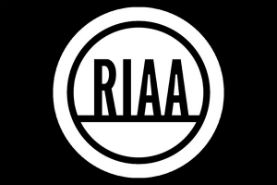Earlier this year, popular hip-hop mixtape website and app Spinrilla filed a lawsuit against the RIAA.
Spinrilla accused the music industry group of sending false DMCA takedown notices that waste resources and harm the site’s goodwill and reputation.
“False takedown notices needlessly waste Spinrilla’s time, disrupts its personnel’s work and puts at risk for terminating a user as a ‘repeat infringer’ when in fact the user uploaded non-infringing content,” Spinrilla wrote.
Yesterday the RIAA responded to the complaint in court. In its filing, the music group reminds the court of the legal history between both parties, which are involved in a separate and ongoing copyright infringement lawsuit.
According to the RIAA, the original lawsuit has demonstrated Spinrilla’s “persistent and flagrant pattern of facilitating and encouraging massive copyright infringement.” The new case is “an obvious and baseless attempt” to draw the court’s attention away from this matter.
These references clearly set the tone but are irrelevant for the new case. However, the RIAA is convinced that Spinrilla’s false DMCA notice allegations are baseless so is asking the court to dismiss the case.
Spinrilla’s complaint only referenced one file that was falsely claimed, this mix, which allegedly infringed the copyrights for the Big Sean & Jhené Aiko track ‘2 Minute Warning.’ In its reply, RIAA explains that this wasn’t a false takedown notice.
According to the music group, Spinrilla doesn’t present any evidence that the RIAA knew that the contested audio file was not infringing. In addition, it says that the site fails to allege that the contested file was actually removed, as is required for such as claim.
“[The complaint] does not allege that Spinrilla ever removed or disabled access to the sole audio file it identifies, or that Spinrilla suffered injury as a result of removing or disabling access to the file,” RIAA writes.
In addition, Spinrilla’s allegation that the music group relies on a faulty text-searching purely speculative and unsupported, RIAA notes.
RIAA’s reply comes with a declaration from Traci Crippen, the group’s Vice President of Operations, Content Protection. She mentions that the contested file was reviewed by both a Universal Music Group (UMG) employee and herself.
“Before sending the takedown notice, Ms. Crippen was informed that a UMG employee listened to the Audio File and determined that it infringed copyrighted UMG sound recordings. Ms. Crippen herself then listened to the Audio File and concluded it was infringing,” RIAA writes.
Although the track in question is mostly absent of any sound, the RIAA doesn’t believe that it can be classified under fair use. And even if it is non-infringing, Spinrilla’s false takedown claims are unwarranted because Ms. Crippen had “good faith belief” that it was.
Based on these and other arguments, the RIAA asks the court to dismiss the complaint. Or alternatively, issue a summary judgment in favor of the music group because it was not aware of any wrongdoing.
Whether Spinrilla has more examples of false takedown notices is unknown. If it does, it will likely present these in reply to RIAA’s response.
—
A copy of RIAA’s response to Spinrilla’s complaint is available here (pdf).


 Earlier this year, popular hip-hop mixtape website and app Spinrilla filed a lawsuit against the RIAA.
Earlier this year, popular hip-hop mixtape website and app Spinrilla filed a lawsuit against the RIAA. 




